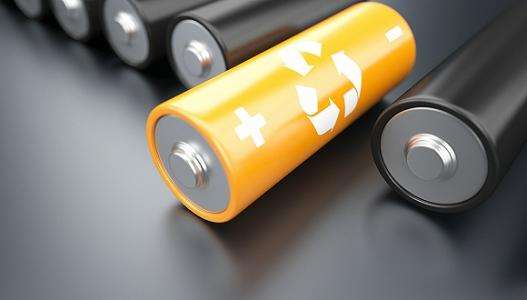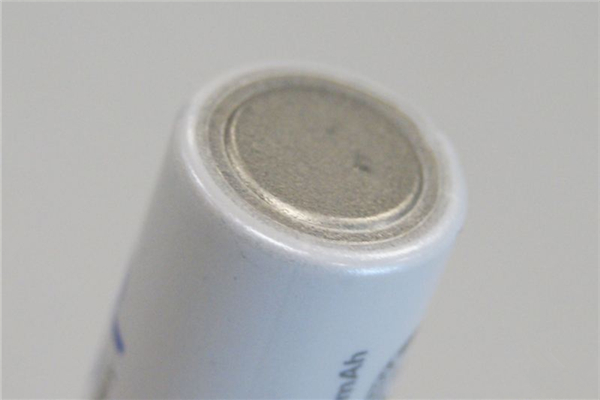What do you know about lithium battery poisoning symptoms?
Jul 23, 2019 Pageview:7814
Lithium-ion batteries are used for powering the majority of the electronic devices in the current times. There is no denying that these cells offer a great deal of convenience and are quite affordable and effective. On the whole, these batteries are considered quite safe. However, they can be dangerous if ingested as they can cause poisoning symptoms. Let us elaborate on what could happen if someone incurs lithium battery poisoning.
What are lithium battery poisoning symptoms?
It is vital to know the symptoms of lithium battery poisoning. This ensures that you are able to gauge the problem at the earliest and thus seek prompt assistance. The thing is, it is usually children who are mostly affected by lithium-battery poisoning as they end up ingesting the cells accidentally. You cannot expect the children to tell you what has happened. Thus, knowing the symptoms can be quite helpful.
Lithium battery poisoning can cause irritation and burns in the mouth, along with slurred speech. You might also notice swelling in the ankles, feet, and lower legs. It is common to experience weakness, tremor, and spastic walk in this case as well. Decreased mental ability, muscle cramps, and spasticity are some other symptoms that one must experience with lithium battery poisoning.
Sometimes, ingestion is not the reason for battery poisoning. It can also occur if an extensive amount of the battery or its content is breathed in. Smoke from the burning cells can also lead to poisoning. In this case, one might experience symptoms such as difficulty in sleeping, slurred speech, and weakness in legs. Headache, muscle cramps, bronchitis, and itching in the skin might also result. Some might experience generalized weakness or develop pneumonia. Spastic walk decreased mental ability and numbness in the fingers and toes are also the symptoms associated with this type of poisoning.
What would happen with lithium battery poisoning symptoms?
There have been many cases of children being seriously injured and even dying owing to swallowing the lithium-ion batteries. These cells are usually a little more in size than a penny and thus are easy to ingest for the little kids. They are present in a lot of household items, including games and toys, remote controls, cameras, calculators, shoes, thermometers, jewelry, and similar other things.
These batteries can get stuck in the esophagus of the little kid as it makes its way down to the stomach. As a result, a burning sensation is felt in the area where the battery is stuck. There is a risk of the child developing severe bleeding, which can ultimately culminate in death. Tissue injury can also occur as a result of which the child would require tube feeding. The vocal cords can be paralyzed as well. To summarize, the child might have to encounter many problems which would require surgical interventions. Recovery would take a long time in such cases.
The course of injury owing to the battery being stuck in the esophagus can begin in merely two hours. Thus, it is vital to remove the battery within this period. However, the problem is that sometimes, the symptoms take some time to appear. Even if the battery remains in the region long enough to start its course of injury, it might be some time before the problem is figured out. Children who end up swallowing these cells are usually too young to elaborate on what has happened, and the symptoms might be disregarded as one of the many common illnesses of childhood.
How to deal with lithium battery poisoning symptoms
It is crucial to seek emergency treatment if anyone swallows a battery. Immediate medical help is mandatory. Avoid trying to make the person throw up unless directed by a health care professional to do so. The person can be given milk or water unless this has been prohibited by a health care practitioner.
If the person has breathed in fumes from the cell, make sure that he is moved to an area with fresh air. If the person came in contact with the contents of the battery owing to its breakage, wash the area exposed with water for a minimum of 15 minutes.
Before you call the emergency, you need to know the type of battery which was swallowed along with the time when it was ingested. It would be quite helpful if you are also aware of the amount swallowed. When you call them, they will let you know of the immediate steps that you should take before bringing the person to the emergency room. Make sure that you follow all their instructions to the last letter.
Head to the emergency room at the earliest. In the emergency room, the vital signs of the patient would be monitored, including his blood pressure, temperature, respiratory rate, and pulse rate. X-rays would need to be done immediately to ensure that the battery is not stuck anywhere in the esophagus. Usually, if the cell passes through the esophagus, it should move out of the body in the stools without any complications. However, if it does get stuck in the esophagus, it can lead to a hole being formed in the region within a short span.
During treatment, the patient might need upper endoscopy wherein a tube and camera are passed through the mouth into the esophagus and abdomen for removal of the battery from where it is stuck.
Bronchoscopy is sometimes required. In this case, the camera and tube are pushed down the throat to make their way to the lungs and airways for removing the battery if it is stuck in the respiratory tract. The rest of the symptoms are treated accordingly.
How well the patient would recover depends on a variety of factors such as the amount of poison he swallowed and the time that it took for him to receive the treatment. The sooner he gets medical attention, the better chances there are of his recovery. Quick treatment is vital for a complete recovery. Household exposures are usually minor unless the battery is swallowed. Serious problems often occur as a result of industrial accidents.
Leave Message
Hottest Categories
-
Hottest Industry News
-
Latest Industry News













